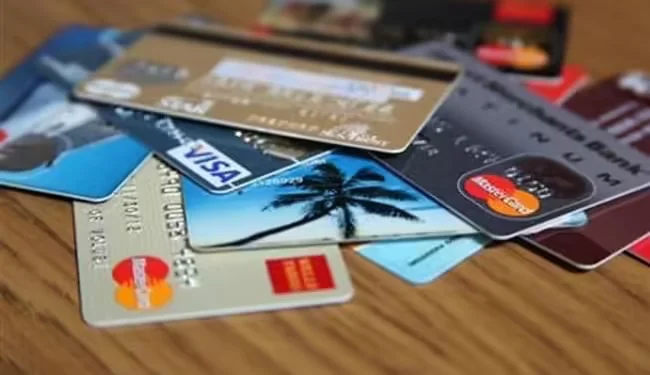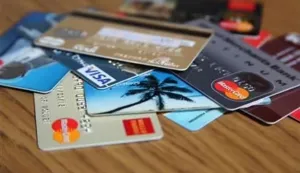Nigerian Banks Resume International Transactions on Naira Debit Cards After Three-Year Suspension

In a significant development for Nigeria’s financial sector, several commercial banks, including United Bank for Africa (UBA), Wema Bank, Guaranty Trust Bank (GTBank), and others, have reinstated international transactions on Naira debit cards, ending a nearly three-year suspension. This move, which began gaining traction in late 2024, allows Nigerian customers to once again use their Naira debit cards for payments on global platforms, such as online shopping, international subscriptions, and other cross-border transactions. The restoration marks a pivotal shift in Nigeria’s foreign exchange landscape, driven by improved liquidity and supportive policies from the Central Bank of Nigeria (CBN).
Background: The Suspension and Its Impact
The suspension of international transactions on Naira debit cards began in 2022, triggered by Nigeria’s severe foreign exchange scarcity. The CBN, grappling with dwindling dollar reserves, imposed restrictions to curb capital flight and stabilize the Naira. Commercial banks, unable to access sufficient foreign currency to settle international transactions, halted the use of Naira debit cards for overseas payments. This forced many Nigerians to rely on costly alternatives, such as domiciliary accounts, Bureau De Change (BDC) operators, or informal channels, to make international payments. The restrictions significantly impacted businesses, students, and individuals who depended on global platforms for e-commerce, education, or services like Netflix, Amazon, and PayPal.
The prolonged suspension frustrated customers and stifled digital transactions, with many Nigerians expressing concerns over the inconvenience and high costs of accessing foreign currency. However, recent improvements in Nigeria’s forex market have paved the way for banks to resume these services, restoring convenience and boosting confidence in the financial system.
The Return of International Transactions
Starting in late 2024, Nigerian banks began announcing the reinstatement of international transactions on Naira debit cards, with specific spending limits and conditions. The move aligns with the CBN’s efforts to liberalize the foreign exchange market, including the unification of exchange rates and increased dollar allocations to BDCs. These policies have improved forex liquidity, enabling banks to settle international transactions more effectively.
- United Bank for Africa (UBA): UBA confirmed the restoration of international transactions on its Visa debit cards in December 2024, setting a monthly spending limit of $100 for contactless payments. Customers can now use their Naira cards for online purchases and payments on global platforms, subject to the bank’s terms.
- Wema Bank: Wema Bank also resumed international transactions, allowing customers to spend up to $100 monthly on online payments. Posts on X have highlighted successful transactions, with users noting the ease of using Wema’s cards for cross-border payments.
- Guaranty Trust Bank (GTBank): GTBank reinstated dollar transactions on its Naira debit cards, with limits of $100 per month for contactless payments and $250 for chip-and-PIN transactions. The bank has encouraged customers to activate their cards for international use through its online banking platform or branches.
- Other Banks: Several other banks, including Zenith Bank and Access Bank, have followed suit, with varying limits and conditions. For instance, some banks offer higher limits of up to $500 monthly for Mastercard users, while others focus on specific transaction types, such as online or point-of-sale payments.
These developments have been widely discussed on social media platforms like X, where users have shared updates, tested transactions, and provided feedback. For example, posts on X have confirmed successful payments on platforms like Amazon, PayPal, and Spotify, with users praising the convenience but also noting challenges like transaction delays or exchange rate fluctuations.
Factors Driving the Resumption
The reinstatement of international transactions reflects broader improvements in Nigeria’s foreign exchange market. Key factors include:
- CBN Policy Reforms: The CBN’s decision to unify exchange rates and float the Naira in 2023 has gradually stabilized the forex market. The removal of multiple exchange rate windows has reduced arbitrage opportunities and improved transparency, encouraging banks to resume international services.
- Increased Forex Supply: The CBN has boosted dollar allocations to BDCs and commercial banks, ensuring greater availability of foreign currency. This has alleviated the pressure that led to the initial suspension in 2022.
- Improved Reserves: Nigeria’s foreign exchange reserves have seen modest growth, supported by rising oil prices and diaspora remittances. As of early 2025, reserves are reported to be above $40 billion, providing a buffer for banks to process international transactions.
- Customer Demand: Persistent demand from customers, coupled with complaints about the inconvenience of restrictions, has pushed banks to prioritize the restoration of these services. Social media campaigns and feedback on platforms like X have amplified these demands.
Implications for Customers and the Economy
The resumption of international transactions on Naira debit cards has far-reaching implications for Nigerian consumers and the broader economy:
- Convenience for Customers: Nigerians can now make seamless payments for online purchases, subscriptions, and travel-related expenses without relying on costly alternatives. This is particularly beneficial for students paying for international exams or courses, businesses sourcing goods abroad, and individuals using global services.
- Boost to E-Commerce: The restoration is expected to drive growth in Nigeria’s e-commerce sector, as customers regain access to platforms like Amazon, eBay, and AliExpress. This could also spur competition among banks to offer better services and higher limits.
- Economic Confidence: The move signals improving economic conditions and greater stability in the forex market, boosting confidence among businesses and investors. It also aligns with Nigeria’s push for digital financial inclusion.
- Challenges Remain: Despite the progress, challenges such as transaction limits, high exchange rates, and occasional system glitches persist. Some users on X have reported issues like declined transactions or delays in processing, indicating that banks are still fine-tuning their systems.
What Customers Need to Know
For Nigerians looking to use their Naira debit cards for international transactions, here are key points to consider:
- Spending Limits: Most banks have set monthly caps, ranging from $100 to $500, depending on the card type (Visa or Mastercard) and transaction method (online, contactless, or chip-and-PIN). Customers should confirm specific limits with their banks.
- Activation Requirements: Some banks require customers to activate international transactions through online banking, mobile apps, or branch visits. For example, GTBank advises customers to enable their cards for international use via its internet banking platform.
- Exchange Rates: Transactions are converted at the prevailing official or parallel market rates, which may include bank fees. Customers should be aware of potential costs, especially with the Naira’s volatility.
- Transaction Types: While most banks allow online and contactless payments, restrictions may apply to certain transactions, such as cash withdrawals abroad. Clarifying with the bank is essential.
Looking Ahead
The reinstatement of international transactions on Naira debit cards is a welcome development for Nigerians, signaling a return to normalcy in the financial sector. However, banks and the CBN must address lingering challenges, such as low spending limits and system reliability, to fully meet customer expectations. As forex liquidity continues to improve, there is optimism that banks may increase limits and expand services, further integrating Nigeria into the global digital economy.
For the latest updates or specific details about a bank’s policy, customers can contact their banks directly or monitor platforms like X, where real-time feedback and announcements are shared. This milestone not only enhances convenience for millions of Nigerians but also underscores the resilience of the country’s financial system in navigating economic challenges.







